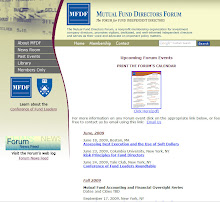In an address before the 2008 AICPA National Conference on Current SEC and PCAOB Developments on December 10, 2008, James L. Kroeker, Deputy Chief Accountant at the SEC, provided some small insight into the direction the Commission may be heading with regard to mark-to-market accounting. Avoiding the finer points of the ongoing debate about mark-to-market accounting, Mr. Kroeker framed his comments in areas where the Commission is finding concensus among investors, companies, and other market participants affected by current market conditions.
[T]he input we have received to-date makes clear that there is room for improvement in the current accounting and reporting framework. For example, there appears to be general agreement that investors could be better served by a more stream-lined model for addressing impairments of assets that are not held for trading purposes. Most agree that the current framework for impairment can be challenging to apply, and the utility of information to investors can be improved.
As a second example, investors have clearly indicated a view that the current concept of mark-to-market accounting increases the transparency of reported financial information, and they have indicated how important this has been to them in the current environment. However, where inactive or illiquid markets exist for a given instrument, we have heard from many that additional training and tools would be helpful as preparers and auditors address front-line issues.
As a last example, and in line with one of the recommendations of the SEC’s recent Advisory Committee on Improvements to Financial Reporting, we have again heard about the importance of fostering an environment where reasonable judgments are both developed and respected.
These remarks indicate that investors, companies, and other market participants see beneficial value in the continued use of mark-to-market accounting, but perhaps with alterations or clarifications for assets not held for trading, and in instances where markets for a security are inactive or illiquid. The key point is that investors, companies, market participants, and regulators seem to have expressed a preference for a model in which reasonable and well-founded judgements in fair valuation can still provide the most transparency and quality.
The full text of Mr. Kroeker's address is available at: http://www.sec.gov/news/speech/2008/spch120808jlk.htm





